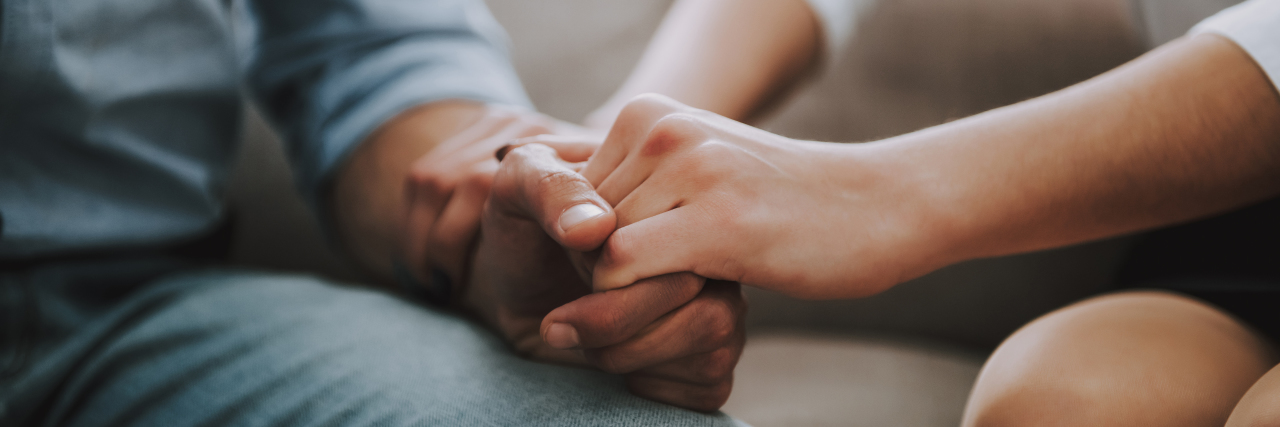What You Don't See When My Boyfriend 'Seems OK'
Editor's Note
This story has been published with permission from the author’s boyfriend.
My love deals with many serious health issues. Multiple traumatic brain injuries have led to post-concussion syndrome (PCS) which comes with ringing in his ears, loss of executive function, memory loss, word finding trouble and concentration loss, to name a few. He struggles with anxiety, depression and agoraphobia. In addition, he has chronic pain from multiple back injuries. This makes mobility almost impossible at times. He requires my assistance to stand and often to position him as comfortably as possible in bed. Sitting can be extremely painful, and walking around being active also comes with pain. He takes a massive amount of medication to try to help with this pain and manage symptoms of PCS.
At this point we have been told by his team of doctors that he will not improve, so we try with all our efforts to keep him where he is today — to enjoy every good day. He has been unable to work for over a year, and this is very difficult for him. He was a successful businessman for many years with great accomplishments and tremendous success. That piece of his identity is gone, leaving him feeling inadequate, useless and undeserving.
He often talks about the “old me” — the things he could do with ease, effortlessly. The way he would coach, read avidly, run around busily multitasking, hosting parties and working 50+ hours per week. I didn’t know this “old me.” We crossed paths shortly after all his symptoms came to a head and he was beginning his medical journey to finding the answers. Unfortunately, most people in his life did know this “old me” — and it is their point of reference.
He has good days, bad days, wonderful days and terrible days. As his girlfriend and primary caregiver I see them all. I am right there by his side enjoying the wonderful times and doing what little I can to help him through the tough ones. When we have an obligation — family gathering, school function, sporting event, etc. — he often “appears” to be “OK” to people. He can walk with his cane, and even sometimes without, not because he doesn’t need it, but because his pride overpowers his pain. He can talk and converse as socially appropriate.
What people don’t see is what I see. The man who has massive anxiety, difficulty getting moving, physical pain and complete doubt about how he’s going to get through any outing. The man who is completely drained after every outing, mentally and physically. It can take days to recover. The man who will need extra sleep in order to try to refuel his brain — to the extent he is able. The man who will need to try to simmer the physical pain down, back to his normal threshold — which is much higher than others could bear. The man who will feel as if the outing didn’t go well and need me to reassure him that he did do well, and to interpret some situations that occurred.
When people say he “looks pretty good” remember this — he is most definitely not “OK.” But he loves you enough to appear that he is — for you.
Getty image by vadimguzhva.

